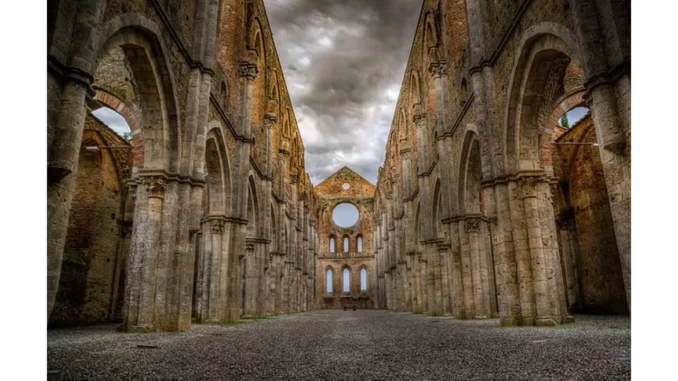
The transformation of historic churches into residential spaces is a multifaceted endeavour that provokes a variety of responses, ranging from enthusiasm for heritage preservation to concerns about the erosion of cultural sanctity. A pertinent example of this complex issue is the proposed conversion of the Aberedw United Reform Chapel in Powys. This chapel, a 19th-century edifice built in the Romanesque style and originally consecrated in 1837, is now at the forefront of a proposal to be reimagined as a dwelling for short-term letting. This initiative not only raises questions about heritage conservation but also highlights the challenging yet rewarding task of adapting historical architecture for contemporary use.
Successful low-energy building design hinges on careful planning. Focus360 Energy can help.
The application, submitted to Powys County Council, aims to repurpose the chapel in a manner that maintains its historical essence while integrating modern functionality. Cadw, the historic environment service of the Welsh Government, has reviewed the proposal and raised no objections, signifying a careful consideration of the balance between preserving historical value and accommodating present-day needs. The design amendments include minor external modifications, such as the introduction of a new arched window and patio-style bi-fold doors. These changes are deliberately understated to minimise any visual impact on the surrounding heritage sites, reflecting a commitment to retaining the chapel’s aesthetic and historical integrity—a crucial component of the proposal and a growing trend within the field of heritage conservation.
In addition to architectural sensitivity, the proposal incorporates ecological awareness. Accompanying the application are a biodiversity enhancement plan and a green infrastructure statement, which outline the inclusion of swift boxes and bat boxes. This initiative not only aims to mitigate environmental impacts but also seeks to enhance the site’s ecological value, underscoring a commitment to sustainable development. Such measures demonstrate a broader understanding that conservation efforts must extend beyond mere architectural preservation to encompass environmental stewardship.
The proposed conversion of the Aberedw United Reform Chapel serves as a microcosm of a broader movement to revitalise historic religious structures. With congregations dwindling and maintenance expenses escalating, many churches face uncertain futures. Transforming these buildings into residential or commercial spaces provides a viable means of preserving their role within the community. However, this process is fraught with challenges, not least of which is navigating community sentiment. For many residents of Aberedw, the chapel is far more than a mere structure; it is a vessel of collective memories and cultural heritage. Engaging the community and incorporating their feedback into the conversion process is vital to addressing concerns and fostering a sense of shared ownership over the chapel’s new role.
Moreover, the adaptive reuse of churches poses significant questions about striking a balance between preservation and innovation. While it is imperative to retain key architectural features and honour the building’s historical significance, there is also an opportunity to breathe new life and functionality into these spaces. The challenge lies in achieving a seamless integration of the old with the new, creating a space that respects its past while welcoming the future.
The proposed conversion of the Aberedw United Reform Chapel is emblematic of the transformative potential of adaptive reuse. Through a careful balance of architectural integrity, ecological consideration, and community engagement, such endeavours can invigorate these cherished buildings with renewed purpose. As we look to the future, it remains essential to explore innovative strategies for preserving our architectural heritage, ensuring these structures continue to be vibrant and integral parts of our communities for generations to come.


Be the first to comment